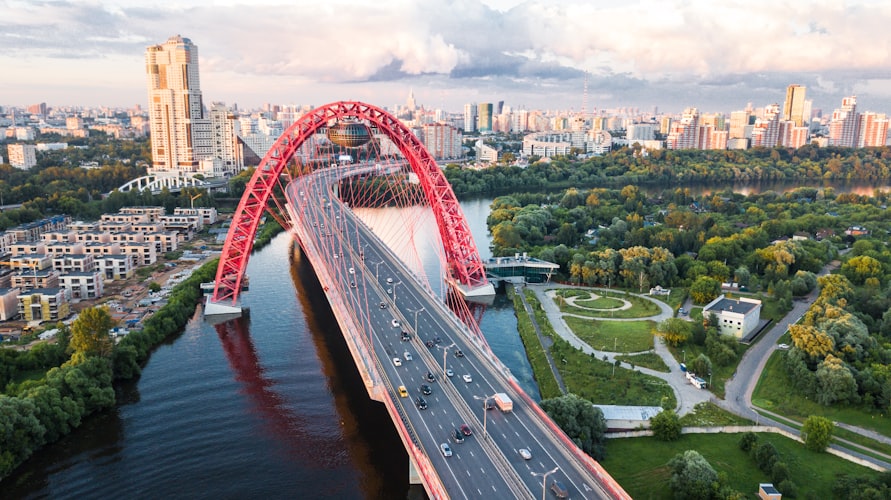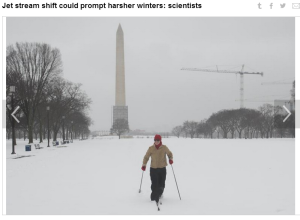
Scientists Predict Longer, Harsher Winter
For comic relief, right from the top of yahoo news -
Jet stream shift could prompt harsher winters: scientists
A warmer Arctic could permanently affect the pattern of the high-altitude polar jet stream, resulting in longer and colder winters over North America and northern Europe, US scientists say.
The jet stream, a ribbon of high altitude, high-speed wind in northern latitudes that blows from west to east, is formed when the cold Arctic air clashes with warmer air from further south.
The greater the difference in temperature, the faster the jet stream moves.
According to Jennifer Francis, a climate expert at Rutgers University, the Arctic air has warmed in recent years as a result of melting polar ice caps, meaning there is now less of a difference in temperatures when it hits air from lower latitudes.
“The jet stream is a very fast moving river of air over our head,” she said Saturday at a meeting of the American Association for the Advancement of Science.
“But over the past two decades the jet stream has weakened. This is something we can measure,” she said.
As a result, instead of circling the earth in the far north, the jet stream has begun to meander, like a river heading off course.
This has brought chilly Arctic weather further south than normal, and warmer temperatures up north. Perhaps most disturbingly, it remains in place for longer periods of time.
Here is the image to sell the piece of junk science linked above -

-——————————————————
The 2000 edition is shown below, but let us give you the punchline: “Children just aren’t going to know what snow is”.
Poor children !!
Snowfalls are now just a thing of the past
Britain’s winter ends tomorrow with further indications of a striking environmental change: snow is starting to disappear from our lives.
Sledges, snowmen, snowballs and the excitement of waking to find that the stuff has settled outside are all a rapidly diminishing part of Britain’s culture, as warmer winters - which scientists are attributing to global climate change - produce not only fewer white Christmases, but fewer white Januaries and Februaries.
The first two months of 2000 were virtually free of significant snowfall in much of lowland Britain, and December brought only moderate snowfall in the South-east. It is the continuation of a trend that has been increasingly visible in the past 15 years: in the south of England, for instance, from 1970 to 1995 snow and sleet fell for an average of 3.7 days, while from 1988 to 1995 the average was 0.7 days. London’s last substantial snowfall was in February 1991.
Global warming, the heating of the atmosphere by increased amounts of industrial gases, is now accepted as a reality by the international community. Average temperatures in Britain were nearly 0.6C higher in the Nineties than in 1960-90, and it is estimated that they will increase by 0.2C every decade over the coming century. Eight of the 10 hottest years on record occurred in the Nineties.
However, the warming is so far manifesting itself more in winters which are less cold than in much hotter summers. According to Dr David Viner, a senior research scientist at the climatic research unit (CRU) of the University of East Anglia,within a few years winter snowfall will become “a very rare and exciting event”.
“Children just aren’t going to know what snow is,” he said.